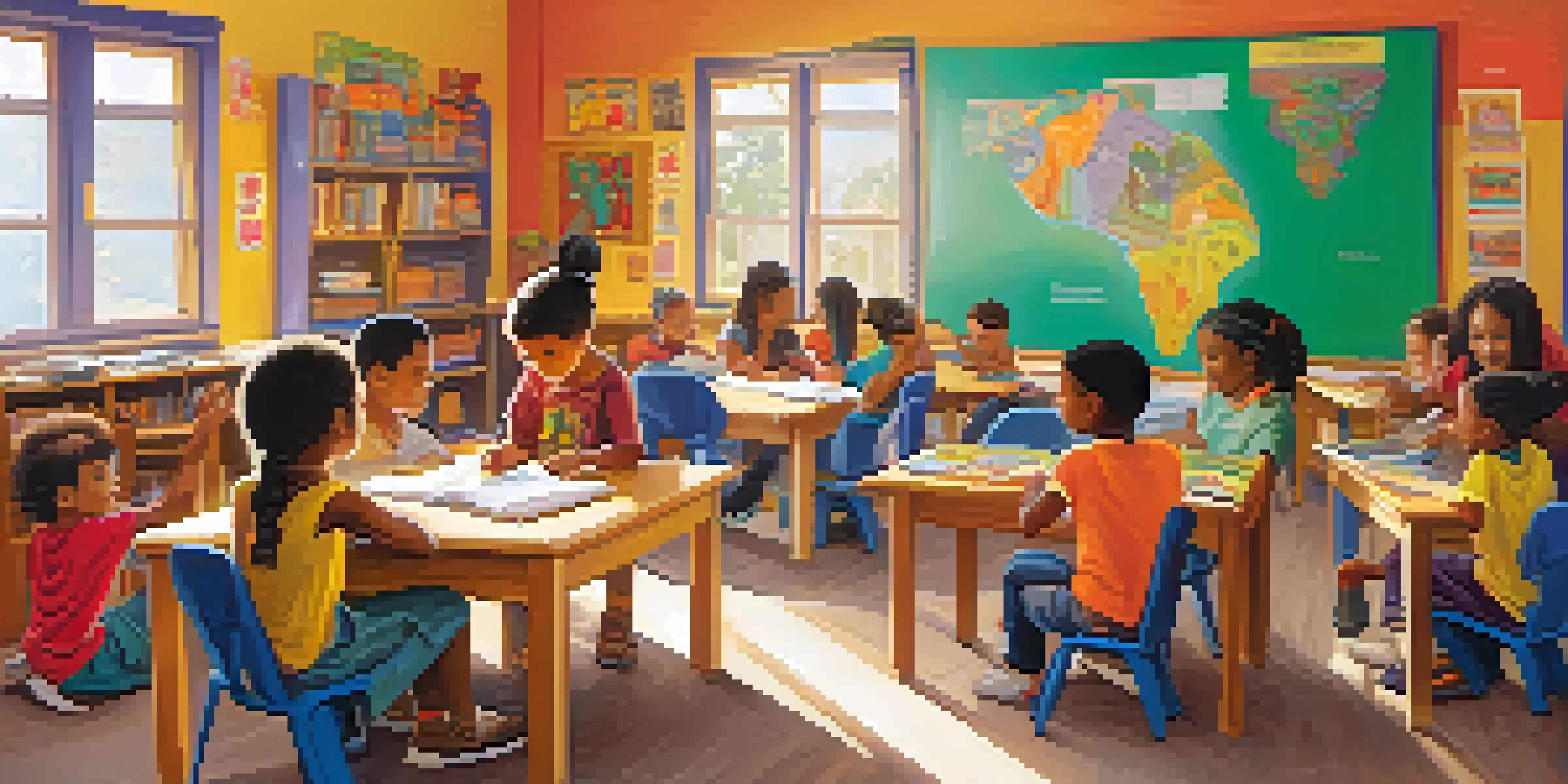The Influence of Culture on Early Childhood Education

Understanding the Role of Culture in Education
Culture plays a fundamental role in shaping educational practices and philosophies around the world. From the values instilled in children to the methods of teaching, culture dictates how knowledge is perceived and shared. Understanding these cultural nuances is crucial for educators, as it allows them to create more inclusive and effective learning environments.
Cultural Values and Learning Styles
Different cultures emphasize various values that influence learning styles. For instance, some cultures prioritize collaborative learning, fostering teamwork and communication, while others may focus on individual achievement and competition. Recognizing these differences can help educators tailor their approaches to better suit the diverse needs of their students.
Culture Shapes Educational Practices
Understanding cultural nuances is essential for educators to create inclusive and effective learning environments.
Language and Communication in Education
Language is a key component of culture that significantly impacts early childhood education. Children learn not only through formal instruction but also through the informal language interactions they have with peers and educators. This means that the language spoken at home can affect a child's comfort level and participation in the classroom, highlighting the need for culturally responsive teaching strategies.
Family Involvement and Cultural Expectations
Family involvement in education varies widely across cultures, influenced by differing expectations and norms. Some cultures actively encourage parental participation in schools, seeing it as a vital part of a child's education, while others may take a more hands-off approach. Understanding these cultural expectations can help educators foster stronger relationships with families and enhance student learning experiences.
Diversity Enhances Learning Environments
Embracing diverse cultural backgrounds fosters mutual respect and enriches the educational experience for all students.
Traditions and Rituals in Learning
Cultural traditions and rituals can enrich early childhood education by providing context and relevance to learning. For example, storytelling is a common practice in many cultures that not only entertains but also teaches moral lessons and cultural history. Incorporating these traditions into the classroom can create a more engaging and meaningful learning environment for children.
Diversity and Inclusion in the Classroom
Embracing diversity in the classroom is essential for fostering an inclusive educational environment. By valuing different cultural backgrounds, educators can promote mutual respect and understanding among students. This not only enhances social skills but also enriches the learning experience, allowing children to learn from one another's unique perspectives.
Globalization Influences Education
The interconnectedness brought by globalization can lead to innovative teaching methods, but it also poses challenges to preserving cultural identity.
The Impact of Globalization on Education
Globalization has brought about significant changes in early childhood education by increasing cultural exchange. This interconnectedness means that educational practices from one culture can influence another, leading to a blend of teaching methods. While this can create exciting opportunities for innovation, it also raises questions about the preservation of cultural identity in education.
Future Directions for Culturally Responsive Education
Looking ahead, it's vital for educators and policymakers to prioritize culturally responsive teaching practices. This involves ongoing professional development and training to equip teachers with the skills needed to navigate cultural diversity effectively. By fostering a culturally aware educational landscape, we can ensure that all children receive an equitable and enriching early childhood education.